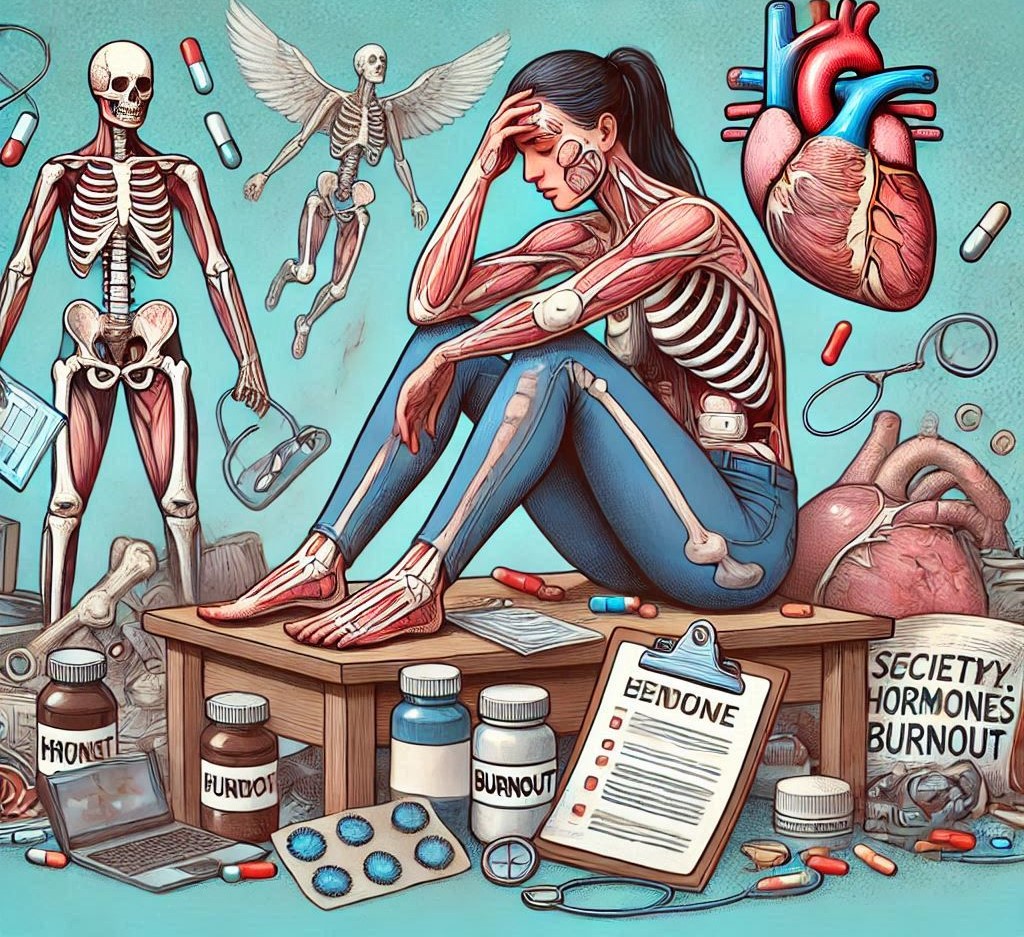-

Tech Meets Biology: The Role of Wearable Technology in Monitoring Hormonal Health
The intersection of technology and biology has revolutionized healthcare, particularly in the realm of hormonal health. Wearable technology is at the forefront of this transformation, enabling real-time monitoring of hormonal fluctuations and offering insights into their effects on physical and mental well-being. These devices provide a bridge between continuous data collection and personalized care, empowering…
-

Stress, Hormones, and Burnout: How Societal Expectations Compound Physical Health Risks
Stress is an inevitable part of modern life. However, its pervasive presence and the intensity of its impact often go unaddressed. Particularly when societal expectations and hormonal influences intertwine, stress transcends the psychological realm and becomes a significant driver of physical health risks. The pressure to excel in professional life, fulfill caregiving duties, and conform…
-

Social Media and the ‘Perfect Life’ Syndrome: Breaking Free from Unrealistic Standards
Social media has transformed the way we connect, communicate, and consume information. Platforms like Integra, Ticktack, and Facebook provide endless opportunities for self-expression and global connectivity. Yet, beneath the surface of scrolling and liking lies a pervasive issue: the “perfect life” syndrome. This phenomenon refers to the unrealistic and idealized portrayals of life that dominate…
-

Beyond Estrogen and Testosterone: The Overlooked Hormonal Players in Emotional Well-Being
When it comes to understanding emotional well-being, the usual suspects—estrogen and testosterone—often dominate the discussion. While these hormones play a pivotal role in reproductive health and secondary sexual characteristics, they are only a part of a larger, more intricate hormonal network that influences our mental and emotional states. This network includes other critical players such…
-

Unpacking Guilt: Disordered Eating in Caregivers of Disabled Family Members
The act of caregiving, particularly for disabled family members, is often fraught with complex emotions, challenging routines, and immense responsibility. While caregiving can be a profoundly meaningful experience, it can also lead to overwhelming stress, self-neglect, and the development of unhealthy coping mechanisms. Among these mechanisms, disordered eating stands out as a silent, yet pervasive,…
-

The Caregiver’s Dilemma: How Stress and Self-Sacrifice Fuel Disordered Eating in Women
Caregiving is often described as one of the most selfless and demanding roles a person can take on. While it brings moments of deep connection and purpose, it can also be accompanied by significant physical, emotional, and psychological stress. For many women, who disproportionately shoulder caregiving responsibilities, these stresses can spiral into harmful coping mechanisms,…
-

Invisible Struggles: How Societal Expectations Overlook Women’s Mental Health
Women across the globe experience unique psychological challenges shaped by the intersection of societal expectations, cultural norms, and gender-specific pressures. While many are familiar with the general idea that women face mental health struggles, the complex and often invisible toll that societal expectations take on their well-being is frequently overlooked or underestimated. These pressures—rooted in…
-

Ageless Beauty and Weight: The Cultural Myths Fueling Disordered Eating in Older Women
Society’s obsession with youth and beauty does not fade with age. For many older women, cultural pressures surrounding appearance remain a potent force, influencing their perceptions of self-worth and their behaviors around food and weight. Despite increased awareness of body positivity and diverse standards of beauty, ageism and unrealistic expectations about aging persist. These pressures…
-

The Role of Fathers in Shaping Emotional Resilience in Sons
Fathers have a profound influence on their sons’ emotional development. Beyond providing financial and physical security, fathers play a critical role in teaching their sons how to handle stress, confront adversity, and regulate their emotions. Emotional resilience—the ability to adapt, recover, and thrive in the face of challenges—is a skill learned over time and greatly…
-

Men in Minority Groups: Unique Mental Health Challenges and Pathways to Support
Mental health is a universal concern, but for men in minority groups, the intersection of their gender, race, ethnicity, sexual orientation, and other marginalized identities compounds their challenges. These men often face distinct societal, cultural, and psychological pressures, which can affect their mental health in ways that differ from the general population. In this article,…
Recent Post
| M | T | W | T | F | S | S |
|---|---|---|---|---|---|---|
| 1 | ||||||
| 2 | 3 | 4 | 5 | 6 | 7 | 8 |
| 9 | 10 | 11 | 12 | 13 | 14 | 15 |
| 16 | 17 | 18 | 19 | 20 | 21 | 22 |
| 23 | 24 | 25 | 26 | 27 | 28 | 29 |
| 30 | 31 | |||||






